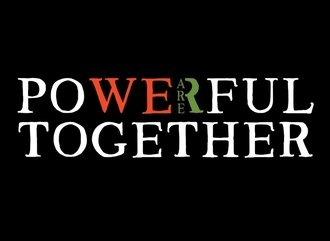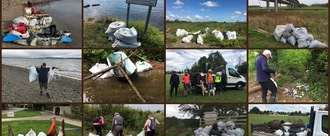- Featured
- Animal Rights
- Anti-racism
- Arts & Culture
- Children
- Climate
- Corporate accountability
- Crime
- Disability rights
- Economic
- Education
- Environment
- Food and Sustainable Production
- Gender Equality
- Governance and Transparency
- Health
- Housing
- LGBT Rights
- Mental health
- Northern Ireland
- Planning
- Privacy and Data Protection
- Rural Inequality
- Social Justice
- Trade
- Transport and Infrastructure
- Workers' Rights
- More
-
Safe Staffing levels for Healthcare Workers in Private Nursing Homes IrelandIt is in every Irish citizens interest to protect our Healthcare Workers and the people they care for, one day it might be you who needs to be cared for! This petition is not only for Healthcare workers but for every single person who lives in Ireland. We Need every one of you. This is a movement in itself. If we get enough signatures we could help to improve the quality of life not just for the healthcare workers but also for the vulnerable people they care for. We need the people of Ireland behind us and we need the minister for health and the government to listen to us and take us seriously because we will not stop, we will never give up until this catastrophe is fixed. We need your support now!! We need better working conditions for all healthcare workers so that we can provide the best quality of care for the people we care for!!47 of 100 SignaturesCreated by Margaret Power
-
Support Youth Demands for Climate JusticeThe more young people who sign in support, the more we can pressure our decision makers to implement these demands.632 of 800 SignaturesCreated by Theresa Rose Sebastian
-
COP on - stop letting big business destroy our climateBig business are producing more, not less emissions and are making the climate crisis worse. Government decisions are letting them off the hook and pushing the burden for the climate crisis on to regular people, not the corporations who drive it.17 of 100 SignaturesCreated by Patrick O'Brien

-
A WORLD WITHOUT WAR82% of the Irish people support neutrality in all its aspects.127 of 200 SignaturesCreated by Margaretta Darcy
-
Trinity College Dublin: Boycott Israeli Apartheid!We call on TCD to boycott and divest from all companies which operate in historic Palestine or which are complicit in Israeli apartheid. This includes companies which manufacture arms or security technologies used by the state of Israel to carry out ethnic cleansing and implement apartheid against the Palestinian people. TCD currently has links with 15 Israeli organizations, including academic institutions such as the Weizmann Institute of Science, which openly collaborates with the war-industry, including many companies involved in armaments, such Israel Aerospace Industries and Elbit Systems. Furthermore, College solicits services from Tel Aviv University, which develops war technology, trains lawyers to defend war crimes and sends Pro-Israeli delegations to foreign universities. Finally, College has links with Technion - Israel Institute of Technology, which is involved with arms research and technology, cooperates with the Israeli military and openly collaborates with the Elbit corporation. This makes every member of the college community complicit in Israel’s crimes and oppression of Palestine. We will not stand for this. We call on TCD to cease all collaboration with Israeli universities in accordance with the guidelines laid down by PACBI, the Palestinian Academic and Cultural Boycott of Israel. These guidelines call for a boycott of Israeli academic institutions, rather than individual academics, as these institutions have played a key role in the ongoing colonization of Palestine. We demand the immediate cessation of research cooperation with Israeli universities that is in any way connected with the security and military industries.986 of 1,000 SignaturesCreated by Trinity BDS
-
Clean up the Broadmeadow Estuary, Co Dublin - and keep it clean.For some years now, Fingal Council has shown very little interest in keeping a clean environment around the Broadmeadow Estuary catchment area. Volunteers in "Swords Pickers" were able to remove truck loads of dumped rubbish from Ward River Valley Park and Broadmeadow Estuary in the first half of 2021 alone. If something is not done to fundamentally correct this, plastic & other waste will continue to travel from the parkland in Swords, through the Estuary and out into the Irish Sea. Development of either the full size all-weather playing pitch and/or the Broadmeadow Greenway in 2021 will obviously add to the problem by multiplying volumes of human traffic.178 of 200 SignaturesCreated by John Drinane
-
End dangerous gambling advertising onlinePresident of Ireland Michael D. Higgins has said gambling ads are a 'scourge' of modern-day life. [1] Left unregulated, dangerous gambling advertisements will continue to cause so much damage to families and individuals. Ireland has the fourth highest number of gamblers in the European Union, according to a study by industry analysts H2 Gambling Capital. On average, losses for Irish gamblers amount to €300 for every adult, totaling €1.36 billion in 2020.[2] The deluge of online gambling online makes it far too easy to place a bet, and the rules have not kept up. The pandemic has also exacerbated this problem, with nearly half of all betting last year taking place online. The Government introduced a working group on this issue who published recommendations in 2019. Now it's time to act! NOTES 1. https://www.thejournal.ie/problem-gambling-michael-d-higgins-5491317-Jul2021/ 2. https://www.irishtimes.com/news/social-affairs/irish-fourth-worst-gamblers-in-eu-as-move-online-accelerates-1.461738612 of 100 SignaturesCreated by Jacob Sosinsky
-
Directly Elected Mayor for GalwayA Directly Elected Mayor for Galway could be a big deal for the future of Galway City. In October 2020 Galway City Council unanimously passed a motion by Cllr. Owen Hanley calling for on the Government to implement referendum so Galway can have it's say on this issue. A Directly Elected Mayor would only ensure that the person in charge of finances, everyday decisions, and the future of Galway is selected and accountable to the people. But it's about more than that. It's also about the broader decision making in our country. It's about moving from a Dublin-centric model, to one where more and more decisions about Galway are made in Galway. Everyday our Councils and staff do work to help our communities. But local government has a long way to go. We need more power and decision making on a local level led by a Directly Elected Mayor.77 of 100 SignaturesCreated by Owen Hanley

-
Support & Protect Residents in Nursing Homes & Care Settings.All of us will know someone, or may even become someone, who requires residential care at some stage. As RTE Investigates and our ongoing campaign shows, current policies and services fail to support residents' rights and fails to adequately protect them when harm occurs. Nothing will change until the law changes. It is clear fifteen years after Leas Cross & seven years after Aras Attracta, that political action will only be forthcoming with sustained public demands for legislative reform. Residents and family members cannot do this alone, please support, sign and share this petition.2,127 of 3,000 SignaturesCreated by Care Champions and the Irish Association of Social Workers
-
Government funded 3rd party car insuranceThis is important because it provides 3rd cover for all private roadworthy vehicles, helping those who are financially disadvantaged and young people, to avail of road legal transport. It also ensures that drivers of larger gas guzzler vehicles and those who use our roads most, pay the most. In addition, it removes the ability of insurance companies to charge extortionate prices for young people and levels the playing field for those with older cars, rural dwellers and those who have inadequate access to public transport.3 of 100 SignaturesCreated by Niall Mac
-
Support Pedal pursuits bike hire and west limerick community developmentWe need to protect our greenways potential/heritage along with businesses and community development.784 of 800 SignaturesCreated by James Barrett
-
Underground the proposed Irish North South Interconnector (NSI) power line.Eirgrid, who operate the Irish Electricity Grid, plans to link the electricity grids in the Republic and North of Ireland by a 400kv overhead power line called the North South Interconnector. This plan would involve the erection of 409 steel pylons ranging in height from 26m to 51m through rural Meath Cavan and Monaghan and Tyrone in close proximity to many homes. This proposal has been rejected vehemently by the residents of these counties on the basis of (a) Health risks associated with living in close proximity to power lines, in particular an association with childhood leukemia, (b) Impact on Heritage, Community life, farming and wildlife (c) Visual impact (d) Noise (e) Impact on property values. From the outset the affected communities, through their representative group NEPP (North East Pylon Pressure) have advocated for the project to proceed using underground cabling to connect the power grids. Eirgrid rejected this proposal stating initially that it wasn't feasible and would cost from 10 to 25 times the overhead option. Eirgrid have since had to concede that undergrounding is indeed feasible and that their costings were grossly wide of the mark. Undergrounding is not in fact more expensive when all costs are taken into account. Indeed Eirgrid have recently selected UNDERGROUND CABLING as the best option for the Kildare-Meath Grid link upgrade. Eirgrid state ..."during the consultation period, new information was received in the form of advice from the Asset Owner cable specialists suggesting that UGC can be constructed in a more efficient manner than was previously assumed.." It can be laid along the road side in a trench 2m by 2m. Had Eirgrid used the same criteria in the Public Consultation process for NSI there is no doubt the NSI would be undergrounded. It is worth noting that Eirgrid are planning to underground the Celtic Interconnector and have dropped plans for the Grid west Overhead line. Why scar the landscape and negatively impact our rural communities for generations to come when there is a viable alternative. Help us to preserve the beauty of our landscape and protect the Health and well-being of our communities. Undergrounding this project is feasible and affordable. We call on Govt to direct Eirgrid accordingly.731 of 800 SignaturesCreated by Philip Ward


.png)









